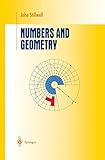I'll recommend a couple of books from that thread:
http://www.springer.com/physics/book/978-0-306-45036-5
http://www.amazon.com/Mathematics-Short-Introduction-Timothy...
I agree with the recommendation of An Introduction to Mathematical Reasoning in this thread.
Another participant has already recommended my favorite for background reading, Concepts of Modern Mathematics by Ian Stewart.
http://www.amazon.com/Concepts-Modern-Mathematics-Ian-Stewar...
Get that right away.
Sawyer's A Mathematician's Delight is surely also good (I've read other books by Sawyer).
http://www.amazon.co.uk/gp/product/0486462404/
Read those for background as you get my favorite overviews of mathematics: Basic Mathematics by Serge Lang and Numbers and Geometry by Joseph Stillwell.
http://www.amazon.com/Basic-Mathematics-Serge-Lang/dp/038796...
(Basic Mathematics is mostly high school level math, with a minimum of fuss and bother, and good exercises.)
http://www.amazon.com/Numbers-Geometry-John-Stillwell/dp/038...
(Numbers and Geometry is mostly undergraduate level math, with very good explanations and excellent exercises.)
http://www.amazon.com/Numbers-Geometry-John-Stillwell/dp/038...
Numbers and Geometry by John Stillwell is very readable and full of very interesting math problems, covering a lot of topics that are accessible to anyone with a good high school education but often aren't covered even by an undergraduate math degree.
Concepts of Modern Mathematics by Ian Stewart
http://www.amazon.com/Concepts-Modern-Mathematics-Ian-Stewar...
Numbers and Geometry by John Stillwell.
http://www.amazon.com/Numbers-Geometry-John-Stillwell/dp/038...
The Pleasures of Counting by T. W. Körner
http://www.amazon.com/Pleasures-Counting-T-W-K%C3%B6rner/dp/...
Mathematics: A Very Short Introduction by Timothy Gowers
http://www.amazon.com/Mathematics-Short-Introduction-Timothy...
http://www.amazon.com/Numbers-Geometry-John-Stillwell/dp/038...
I'll quote a bit of Stillwell's preface to give the flavor of the book:
"What should every aspiring mathematician know? The answer for most of the 20th century has been: calculus. . . . Mathematics today is . . . much more than calculus; and the calculus now taught is, sadly, much less than it used to be. Little by little, calculus has been deprived of the algebra, geometry, and logic it needs to sustain it, until many institutions have had to put it on high-tech life-support systems. A subject struggling to survive is hardly a good introduction to the vigor of real mathematics.
". . . . In the current situation, we need to revive not only calculus, but also algebra, geometry, and the whole idea that mathematics is a rigorous, cumulative discipline in which each mathematician stands on the shoulders of giants.
"The best way to teach real mathematics, I believe, is to start deeper down, with the elementary ideas of number and space. Everyone concedes that these are fundamental, but they have been scandalously neglected, perhaps in the naive belief that anyone learning calculus has outgrown them. In fact, arithmetic, algebra, and geometry can never be outgrown, and the most rewarding path to higher mathematics sustains their development alongside the 'advanced' branches such as calculus. Also, by maintaining ties between these disciplines, it is possible to present a more unified view of mathematics, yet at the same time to include more spice and variety."
A more controversial, and plenty spicy, comment on the algebraic approach to mathematics as contrasted with the geometric approach to mathematics is Paul Halmos's article, "Applied Mathematics Is Bad Mathematics,"
http://books.google.com/books?id=rQ6FAAAAIAAJ&q=Halmos+A...
(that's not a full-text view of the article)
which I disagree with, as maybe Halmos intended his provocative title to be disagreed with.


https://www.amazon.com/Numbers-Geometry-Undergraduate-Texts-...